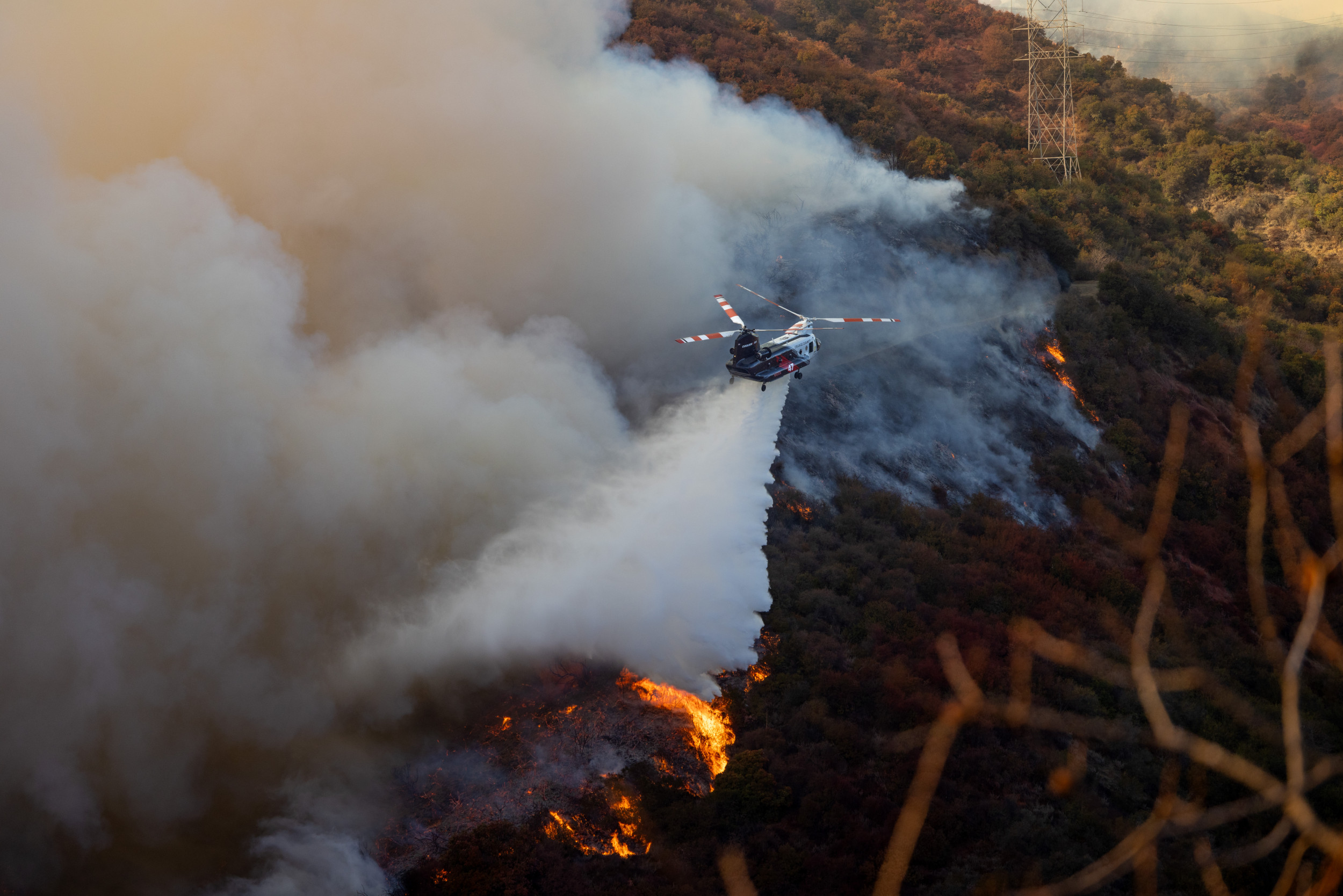A conflict monitor has identified Israel as being responsible for the majority of the world's civilian deaths and injuries during wartime throughout 2024.
The report published Tuesday by the United Kingdom-based Action on Armed Violence (AOAV) found last year to be the most harmful on record for civilians since the group began compiling data in 2010. Some 61,353 noncombatants were killed and wounded throughout 2024, marking a 67 percent increase from the previous year, with Israel named as the top culprit amid its war with the Palestinian Hamas movement in the Gaza Strip and Iran-aligned Axis of Resistance factions elsewhere in the region.
"Israel was identified as the single largest perpetrator of civilian harm in 2024, accounting for 55% all civilian casualties from explosive weapons globally," according to an AOAV press release shared with Newsweek. "The report attributes 33,910 reported deaths and injuries to Israeli actions, primarily in Gaza, Lebanon, and Syria.
"This also marks a 139% increase in civilian harm caused by Israel compared to 2023, when it accounted for 39% of global civilian casualties," the group added.

Why It Matters
Top leaders from Israel and Hamas have been accused of war crimes by the United Nations and the International Criminal Court (ICC), which issued arrest warrants in May for Israeli Prime Minister Benjamin Netanyahu and former Defense Minister Yoav Gallant, as well as Hamas' Al-Qassam Brigades commander Mohammed Deif.
Deif's fate is unknown as Israel announced it had killed him during an airstrike last July, though Hamas has not acknowledged his demise. The group has, however, confirmed the deaths of then-Political Bureau chief Ismail Haniyeh and his successor, Yahya Sinwar, both of whom were also named in the initial ICC probe opened last May.
Another multilateral judiciary headquartered in The Hague, the International Court of Justice, is currently weighing charges of genocide brought by South Africa against Israel in connection with the conflict in Gaza.
Israel and Hamas have regularly accused another of war crimes while denying their own side was responsible for them. Meanwhile, international pressure has mounted toward finalizing a long-sought ceasefire deal that has been on the table for months.
Yet the conflict, which began with a Hamas-led surprise attack on Israel on October 7, 2023, has yet to abate, even as other vast shifts have emerged on other connected fronts in Syria and Lebanon.
U.S. President Joe Biden's administration, which has aided Israel throughout the conflict while calling on it to do more to mitigate civilian harm, has so far dismissed accusations that Israel was behind a genocide in Gaza, while the outgoing president and his officials have applied to term to other conflicts such as the Sudanese civil war and the Russia-Ukraine war.
What To Know
Gaza was ranked the worst-affected area from attacks on civilians around the world, followed by Ukraine, Lebanon, Sudan and Myanmar.
Israeli officials have estimated that around 1,200 people, most of them civilians, were killed in the initial attack led by Hamas in October 2023. Dozens more have been killed as a result of rocket, missile and drone attacks conducted by Hamas and Iran-aligned factions, particularly the Lebanese Hezbollah movement, which signed a 60-day ceasefire with Israel on November 27 of last year.
The Palestinian Health Ministry based in Gaza has recorded more than 46,600 deaths throughout the war, the majority of them said to be among women, children and elderly people, though the documents did not distinguish between combatants and noncombatants.
The Lebanese Health Ministry has counted more than 4,000 killed, also without distinguishing between civilians and fighters, since Israel began conducting strikes and later launched a ground incursion into Lebanon. Hundreds of Syrians are also reported to have been killed in Israeli operations throughout the broader conflict.
What People Are Saying
The IDF in a statement shared with Newsweek on Tuesday: "The IDF is committed to mitigating civilian harm during operational activity in strict accordance with international law. In that spirit, the IDF employs a variety of means to assess the potential impact of its operations on the civilian population, while distinguishing between civilians and combatants as required by its legal obligations and entrenched value."
Israeli Consulate General in New York spokesperson Ariella Rada in a statement shared with Newsweek on Tuesday: "As has been proven so many times, it is impossible to rely on any data coming out of Gaza, and one cannot trust the anti-Israeli and biased reports in this context. Stop spreading lies about Israel. You are promoting propaganda that serves Hamas and terrorism. Israel takes every measure possible to protect innocent civilians. The war in Gaza was forced upon Israel after the terrorist group Hamas violently invaded and butchered over 1200 Israelis and took hundreds of innocent people hostage. 98 of them are still in captivity."
AOAV Executive Director Iain Overton in a statement shared with Newsweek on Tuesday: "AOAV's data on explosive violence harm is built on over a decade of consistent news monitoring, drawing from over 400 reputable media sources. While we do not claim to capture every incident, our long-term dataset allows us to accurately identify trends and highlight the disproportionate harm inflicted on civilians. The 67% surge in civilian casualties in 2024 is not just a statistic; it is a call to action for the international community to prioritise civilian protection and hold perpetrators accountable."
What Happens Next
The coming hours and days could prove crucial for the war in Gaza as less than a week remains until President-elect Donald Trump takes office. The former U.S. leader set to retake the White House from his successor on Monday has repeatedly warned that "all hell will break out in the Middle East" if the remaining hostages held by Hamas were not released by the time of his inauguration.
Speaking to Newsmax on Monday, Trump said that "we are very close to getting it done" and "they have to get it done," or else "there's going to be a lot of trouble out there—a lot of trouble like they have never seen before."
Biden also struck an optimistic tone the same day, saying the two sides were "on the brink of a proposal" that aligned with the three-phase peace plan he first outlined last May.




















 English (US) ·
English (US) ·